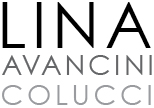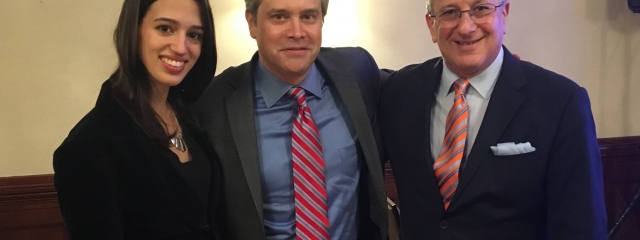
I was absolutely thrilled to get an invitation from Bob Graboyes at the Mercatus Center to be on a panel on healthcare innovation at the NABE Economic Policy Conference. Here is a recap of the panel.
Policies to Promote Health Care Innovation
March 8, 2106 at 1:30-2:30p
Lina A. Colucci, Former Co-Director of MIT Hacking Medicine, MIT/Harvard PhD Student
Robert Graboyes, Senior Research Fellow, Mercatus Center at George Mason University (Moderator)
Craig Martin, Chief Executive Officer, Feinstein Kean Healthcare
Conference materials here. #pcNABE @business_econ
Overview of the Event
Bob (the moderator) introduced all of us and the goal of the panel. Each panelist spoke about health innovation for 10 minutes with slides. Bob presented the economist/policy perspective. Craig spoke from the perspective of someone who works with all the top health innovators. I then spoke from the perspective of a health innovator. We then opened things up for Q&A. Bob asked a few questions and the audience asked several. Thank you to all the audience members who participated and contributed to a great discussion.
My Slides
Here are materials from my 10min presentation. Recordings from the rest of the panel may be made available at a later date.
Video Recording of My Presentation
Transcript of My Talk
Slide 1. My name is Lina and I’m hear to talk from the technology perspective, being on the frontlines of innovation, and pushing the future of healthcare forward. As Bob mentioned I’m a PhD student at a joint program between MIT and Harvard Medical School. I study biomedical engineering and the program does this unique thing where we engineers do engineering coursework at MIT in addition to the first year of medicine over at Harvard Medical School including clinical rotations. As we start to think about interdisciplinary innovation, this is a fantastic way to get engineers a hands-on exposure to the medical world. But there are lots of other ways to do this besides forcing everyone to get a 6-year PhD. I’ll chat a bit about what some of those alternatives are.
Slide 2. The 2 things that I want to chat with you about today to introduce some ideas that will hopefully spark some lively discussion after, are (1) my personal vision for the future of healthcare, and (2) health hackathons, what they are, and how they can be a great vehicle to promote healthcare innovation.
Slide 3. I believe that medicine will be completely transformed by health sensors. And to understand exactly how and why that’s going to happen, let’s take a look at how medicine is practice today.
Slide 4. The current model of care is that, if you’re a healthy person, you go to the doctor once a year (maybe even less than that), they run some basic tests. If the tests fall in a normal range they tell you you’re okay, and off you go for another year.
Slide 5. Until… you get sick. And then once you’re sick, once something has gone wrong in you body, you have to go to the doctor and they try to fix you up again once something has gone awry. And this is how healthcare has been practice for centuries. Something goes awry in our bodies, doctor’s fix it. And we accept this model because this is what we’re used to.
Slide 6. But it’s not what we accept for other things in our lives. Can you imagine if we accepted this model for our cars?
Imagine if our cars had no sensors giving us feedback about how it was doing. You wouldn’t know you were running low on gas until your car started sputtering in the middle of the highway.
Or you wouldn’t know if you were out of oil until you started hearing terrible noises from your car.
These things are fixable. AAA would help you fuel your car up again and a car mechanic could probably replace some of the engine parts if they were damaged, but wouldn’t it be better if none of these mishaps happened in the first place? Of course it would! And of course cars have sensors that are continuously giving us feedback about what needs attention and repair.
Slide 7. We monitor our cars continuously and we are able to intervene, before something breaks down. The way we interact with our cars is continuous and preventative…
Slide 8. …Yet when it comes to our bodies, it’s episodic and reactionary. This needs to change.
Slide 9. We need to move from a model of care that is episodic and reactionary to one that is continuous and preventative. To accomplish this we need different tools.
Slide 10. That’s where health sensors come into the picture. We have wearables, ingestibles, implantables. There will soon be health sensors that measure every aspect of human health. The iWatches and Fitbits that we see today are just the tip of the iceberg. We already have:
Microneedle patches to measure blood analytes…
The ability to do an entire sleep study in the home…
Ultrasounds that fit in one’s pocket…
Tattoos that measure vital signs…
Intelligent pills that measure what’s going on inside the body, and…
Nanoparticles that find cancerous cells in the body
The only thing that’s missing from this list is a hydration sensor, which is what I’m working on developing in my PhD. Despite the fact that our bodies are mostly water, there’s no good way to measure hydration.
As these health sensors become commonplace, healthcare and the way we practice medicine is going to look very different.
Slide 11. We’ll actually be able to understand trends and get closer to practicing truly personalized medicine. Your tests may come out in the normal range at your annual doctor’s check up but if the long-term picture was something like this, that would be a lot more worrisome than something like…
Slide 12. …this.
Slide 13. That’s the power of health sensors. They will enable us to have access to long data – longitudinal data on a single individual over time. Long data will change our definitions of disease and bring us closer to practicing truly personalized medicine.
I don’t care what Bob and Craig’s average blood pressure values are. I care about my own baseline and my own trends and when I’m deviating from my own normal.
Slide 14. This is my vision for the future of medicine and this is what I’m working on. But there are lots of areas of medicine that are broken and we need people to come up with their own visions for how to fix those parts as well.
Slide 15. This is where health hackathons come into play.
I was Co-Director of a group called MIT Hacking Medicine and our vision is to ignite medical innovation by bringing all stakeholders together in the same room.
Slide 16. Health hackathons are these jam packed weekends where we bring doctors, engineers, nurses, designers, business people, patients… all the different stakeholders who normally don’t chat with each other… together to start tackling some of these real world healthcare problems.
Slide 17. Health hackathons have grown exponentially since they started. There were 3 in 2010 and nearly 80 2014 and those numbers continue to go up. MIT Hacking Medicine has had the fortune of being involved in 20% of health hackathons that happen around the world.
Slide 18. Health hackathons are happening everywhere.
Slide 19. And they’re involving everyone. These are just some of the partners that we’ve worked with. They range from high tech companies like Samsung and Intel to governments to hospitals and universities. Everyoen is getting involved in this movement as a way to catalyze innovation.
Just to give you all an example of what a health hackathon might be. They can address a variety of different topics. This is one of my favorite and it’s about breast pumps.
Slide 20. Breast feeding is a nearly universal experience but it’s certainly a challenge for working moms. That’s where breast pumps come to the rescue and allow moms to feed their children despite having a busy working schedule. But existing breast pumps are loud, clunky, lots of parts that are hard to clean… That’s why a group of moms came together and asked…
Slide 21. “Why is a Prius quieter than a breastpump?”
Slide 22. And they held a “Make the breastpump not suck”-hackathon. That hackathon brought together moms, moms brought their babies, dads came too, engineers and designers joined. In 48 hours they came up with better solutions than the industry developed in the past 20 years. That’s the power of these health hackathons. That’s what happens when you put stakeholders in the same room and empower them to solve their own problems.
From the hackathons we’ve done, there have been dozens of successful startup companies come out… companies who have clients in all 50 US states and raised tens of millions of dollars in funding. Projects that begin at these weekend-long health hackathons have a real impact on the healthcare system and improving people’s lives today.
I talked to you about 2 things today: (1) my personal vision for the future of healthcare involving health sensors, (2) health hackathons as a model to promote innovation. We’re going to open things up now and would love to hear your thoughts on all of this.










One Response to “NABE Panel: Policies to Promote Health Care Innovation”